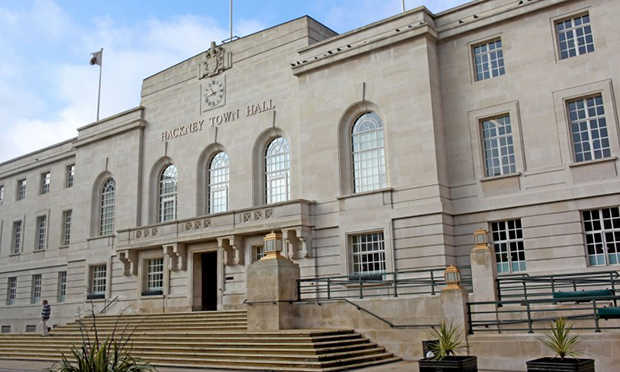DBS checks now compulsory for Hackney’s elected politicians

A council spokesperson said DBS checks were an ‘important safeguarding measure’
Hackney’s elected mayor and councillors will now have to pass enhanced Disclosure and Barring Service (DBS) checks after local politicians last night voted to adopt the rule with immediate effect.
It follows two separate cases of now ex-councillors being charged with sexual offences relating to children and young people.
Former Labour councillor Tom Dewey resigned 11 days after his election in De Beauvoir in 2022 when it emerged that he had been arrested for possession of indecent images just weeks before.
Dewey was later convicted and given a suspended sentence.
The scandal led to former mayor Philip Glanville stepping down after he was pictured socialising with Dewey—despite knowing he had been arrested.
Then, in July this year, former deputy speaker Lee Laudat-Scott resigned his post before he was charged with sexual assault against a child.
Antoinette Bramble, deputy mayor and cabinet member for education, young people and children’s social care, had urged councillors to adopt the new measures.
“Every elected member will agree it’s a privilege to be able to serve the elected to advocate on behalf of your community, stand with your community, and make fundamental differences,” she said.
“But along with that comes responsibility, and part of that responsibility is the standards that we hold in elected office.
“So, it’s important that we do everything within our power to ensure that we’re using the tools and levers to make sure that we’re holding each other
to account.”
The full report put to the council invoked the independent Bailey review of the DBS service, commissioned by the Home Office, which recommended councillors undergo an enhanced criminal record check before they can sit on committees relating to services for children or vulnerable adults.
However, in January, an independent inquiry into Dewey’s election concluded that little could have been done to stop him becoming a Hackney councillor.
Former chief executive of Staffordshire County Council, John Henderson, led the investigation.
He concluded that Dewey had “targeted Hackney as a place to launch his political career”.
While Henderson gave the council credit for following “every step to the letter” in dealing with Dewey’s arrest, he also gave short shrift to the idea that DBS checks would prevent the same or similar situations.
“DBS checks are a negative vetting measure, only looking for major issues such as existing convictions, and only as good as the day on which they were performed,” he explained in his report.
“This would also have to be a national decision, rather than something that Hackney Council could implement of its own volition.
“Mr Dewey would almost certainly have passed a DBS check in early 2022, and there is a risk that they might give a false sense of reassurance.”
A report to the standards committee earlier this month also included a caveat that introducing DBS checks “will not provide absolute certainty that the circumstances in which the council has most recently found itself could not be repeated”.
But prior to the vote on the new rule, a council spokesperson told the Citizen that adopting the “widely-used” safeguarding measure would give residents “full confidence” in the council’s approach.
“This new proposal takes into account the existing law on DBS checks, the recommendations from the report of the independent review of the DBS commissioned by the Home Office, and a letter to all councils from the Minister of Local Government earlier this year,” they said.
“DBS checks only identify existing convictions or warnings, but they are an important safeguarding measure used widely by many public services.
“Candidate selection is a matter for political parties, in which the council has no role.”
Before the motion was passed unanimously, Cllr Penny Wrout was eager to reassure those who had past “encounters with the criminal justice system” that it would not stop them from standing as councillors in the future.
She added that those kinds of life experiences can be extremely valuable as a councillor, and assured that “in most circumstances, the information taken in a DBS check would remain confidential”.
“Even if the results did have to be shared with some senior figures in the council, there would be a duty of confidentiality to not make that information public.
“I wanted to have that on the record, to encourage people to stand as councillors even if they do have a ‘past’.”
